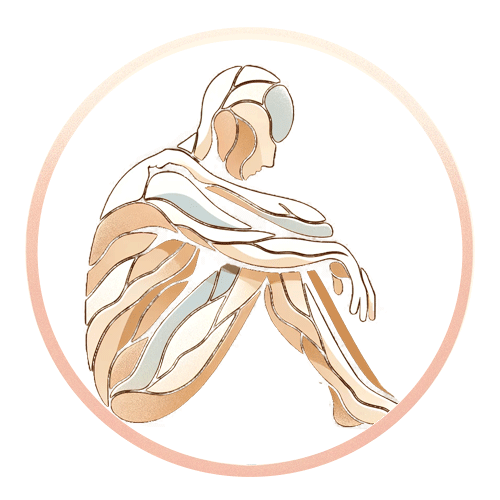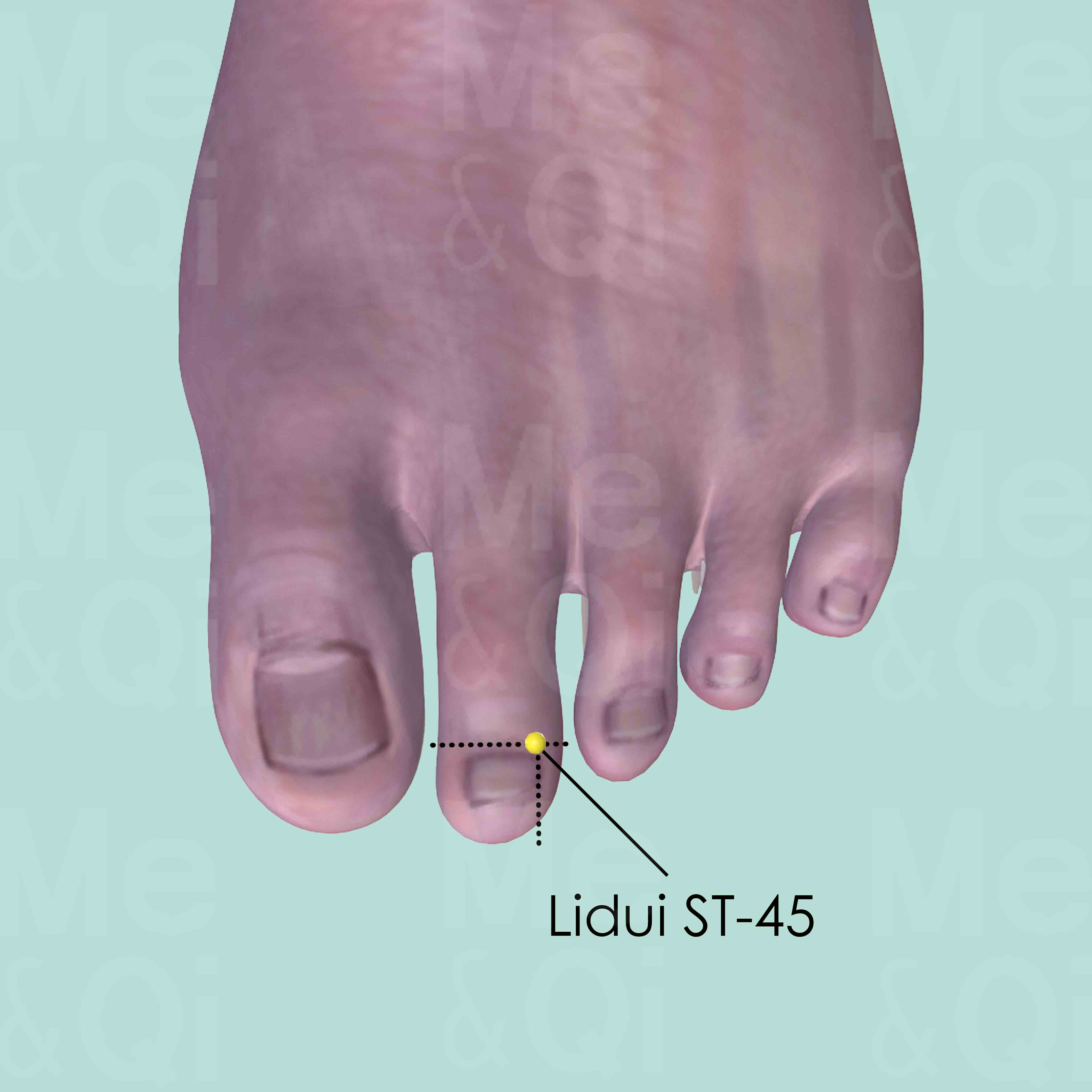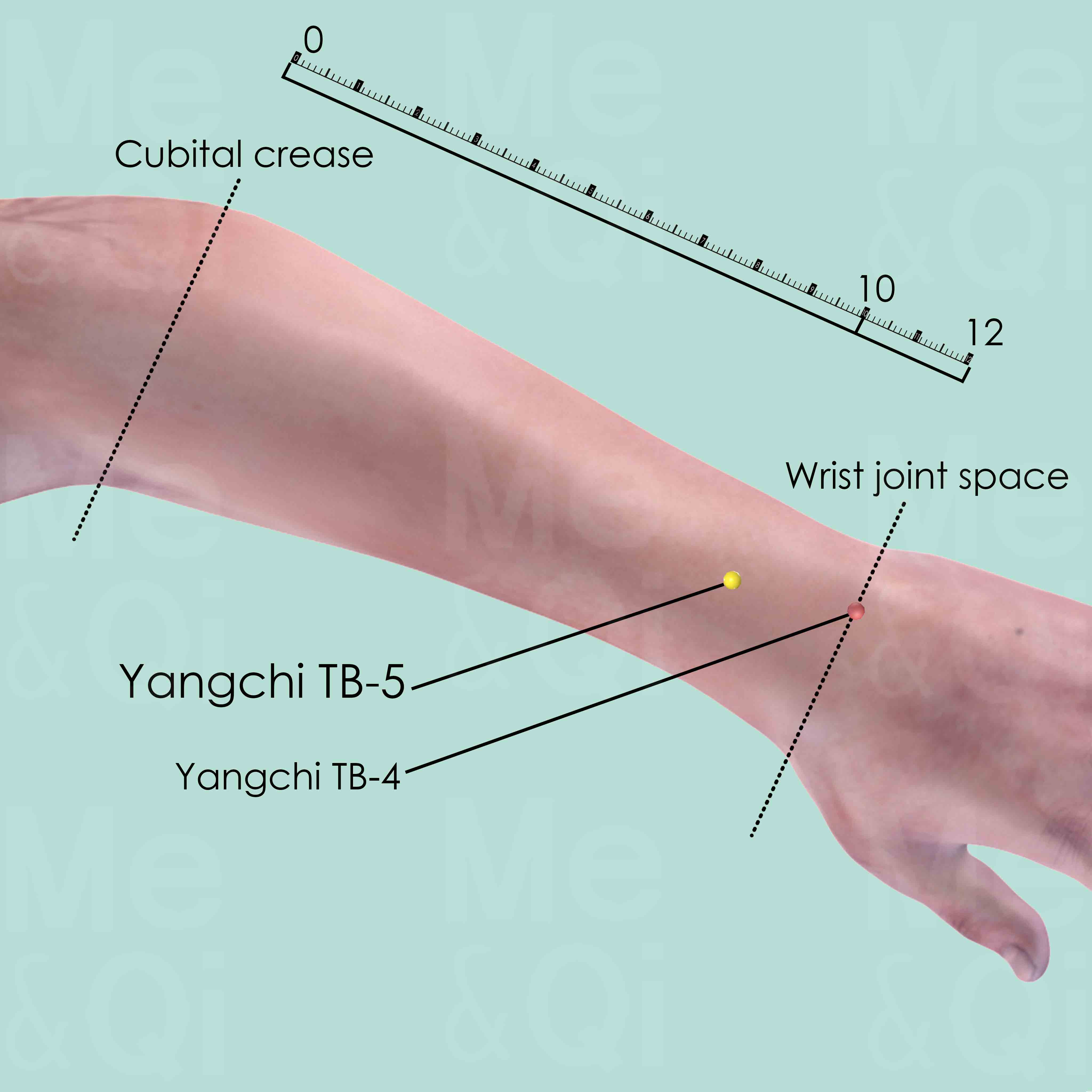Dry Lipsaccording to TCM
Symptom families: Lip Symptoms, Oral Dryness
What are Dry Lips?
Dry lips, commonly known as chapped or cracked lips, occur when the lips lose moisture, leading to an uncomfortable and sometimes painful condition. This ailment can be caused by various factors, including extreme weather conditions, dehydration, or certain medical conditions. The lips may appear flaky, red, and tender to the touch. While often a minor issue, persistent dry lips can indicate an underlying imbalance or a need for better self-care.
How Does TCM View Dry Lips?
From the perspective of Traditional Chinese Medicine (TCM), dry lips are often a sign of an internal imbalance rather than just an external problem. TCM theory suggests that symptoms like dry lips can arise from Deficiencies or disharmonies within the body's fundamental substances, such as Qi, Blood, Yin, and Body Fluids.
Understanding the precise pattern of disharmony is essential in TCM because it determines the treatment strategy. Dry lips are not just treated with topical applications but are approached holistically, considering the overall health and balance of the individual.
Root Causes of Dry Lips in TCM
TCM traces the roots of dry lips to deeper systemic issues, with Blood Deficiency and Body Fluids Deficiency being common culprits. Blood Deficiency, characterized by symptoms such as pale lips and dizziness, suggests a lack of nourishment and moisture reaching the skin, including that of the lips.
Similarly, when Body Fluids are deficient, the body cannot lubricate itself effectively, leading to dryness in various areas, including the lips. TCM treatments focus on nourishing and replenishing these essential substances to alleviate the symptom of dry lips and restore systemic balance.
Explore below more details about what might cause Dry lips according to TCM.
- By Syndrome
- By Organ
- Blood Deficiency
- Body Fluids Deficiency
- Qi Deficiency
- Yin Deficiency
- View More Causes
- Stomach
- Spleen
Blood Deficiency
Blood Deficiency in TCM is like when your body's tank runs low on the vital energy that blood provides. It's not exactly the same as anemia in modern medicine, which is about having too few red blood cells. Instead, Blood Deficiency in TCM is about your body not having enough of the life-giving qualities that blood brings, like nourishment and moisture. This can make you feel tired, look pale, and even feel dizzy or have blurry vision. It's like a garden not getting enough water to stay lush and vibrant. TCM sees this as an imbalance where the body isn't being nourished as it should be, impacting overall health and well-being.... see more
Blood Deficiency Patterns That Can Lead to Dry Lips
Common Symptoms: Dizziness Scanty Menstruation Amenorrhea Pale Lips Poor Memory Insomnia Tingling Blurry Vision
| Pattern Name | Relevant Symptoms | Relevant Formulas |
|---|---|---|
| Blood Deficiency | Dry lips, Dizziness, Scanty menstruation, Amenorrhea, Dull shallow face, Pale lips, Poor memory, Insomnia... see more | Si Wu Tang | Dang Gui Bu Xue Tang |
| Qi and Blood Deficiency | Dry lips, General weakness, Generalized fatigue, Weak voice, Pale face, Shortness of breath, Palpitations, Dizziness, Poor memory, Insomnia, Reluctance to speak, Lack of appetite, Limb numbness, Skin numbness... see more | Gui Pi Tang | Ba Zhen Tang | Guo Qi Yin | Zhi Gan Cao Tang |

Body Fluids Deficiency
In TCM a deficiency of body fluids indicates an imbalance where the body lacks sufficient Yin fluids, which are crucial for lubrication and nourishment. This condition often results from prolonged illness, overexertion, or consuming too many drying or heating foods. Symptoms of body fluid deficiency can include dryness in the skin, eyes, mouth, and throat, as well as a dry cough, constipation, and a feeling of thirst. Additionally, there might be more subtle signs like a dry tongue, a thin pulse, and a general sense of fatigue or weakness. This pattern of disharmony reflects an underlying insufficiency in the body's ability to generate and maintain essential fluids, which are vital for the proper functioning of organs and systems.... see more
Body Fluids Deficiency Patterns That Can Lead to Dry Lips
| Pattern Name | Relevant Symptoms | Relevant Formulas |
|---|---|---|
| Body Fluids Deficiency | Dry lips, Skin dryness, Dry mouth, Dry nose, Dry cough, Dry tongue, Dry throat, Dry stools | Xing Su San | Bai He Gu Jin Tang | Zeng Ye Tang |
Qi Deficiency
Qi Deficiency in TCM is like running low on battery power. Qi is the vital energy that powers every function in your body. When there's a Qi Deficiency, it means your body doesn't have enough of this essential energy. This can make you feel tired all the time, weak, or even cause shortness of breath. It's similar to how you feel when you haven't had enough sleep or nutritious food. Your body just doesn't have the energy it needs to perform at its best. Unlike modern medicine, which often focuses on specific physical causes for fatigue and weakness, TCM views Qi Deficiency as an overall energy depletion that affects your entire well-being, and it seeks to replenish and balance this vital energy.... see more
Qi Deficiency Patterns That Can Lead to Dry Lips
| Pattern Name | Relevant Symptoms | Relevant Formulas |
|---|---|---|
| Qi and Blood Deficiency | Dry lips, General weakness, Generalized fatigue, Weak voice, Pale face, Shortness of breath, Palpitations, Dizziness, Poor memory, Insomnia, Reluctance to speak, Lack of appetite, Limb numbness, Skin numbness... see more | Gui Pi Tang | Ba Zhen Tang | Guo Qi Yin | Zhi Gan Cao Tang |
Yin Deficiency
Yin deficiency in TCM is a pattern of disharmony characterized by a depletion of the body's Yin energy, which represents the cooling, moistening, and nurturing aspects of our physiology. This condition often arises from factors like chronic stress, overwork, insufficient rest, or prolonged illness. Symptoms of Yin deficiency can include a sensation of heat, especially in the afternoon or evening, night sweats, insomnia, a dry mouth or throat, and a red tongue with little coating. There might also be a general feeling of restlessness or irritability. Since Yin is essential for balancing the body's active and warm Yang energy, its deficiency leads to a relative excess of Yang, manifesting as heat or dryness symptoms.... see more
Yin Deficiency Patterns That Can Lead to Dry Lips
| Pattern Name | Relevant Symptoms | Relevant Formulas |
|---|---|---|
| Stomach and Spleen Yin Deficiency | Dry lips, Lack of appetite, Dry mouth, Preference for sipping, Dry stools, Nausea, Generalized fatigue, Upper abdominal discomfort, Loss of taste... see more | Shen Ling Bai Zhu San |
Stomach
In TCM the Stomach is regarded as the "sea of nourishment," pivotal for digesting food and transforming it into Qi and blood. It works closely with the Spleen to distribute these essential nutrients throughout the body. When the Stomach is out of balance or malfunctions in TCM, it often leads to digestive problems such as bloating, nausea, vomiting, poor appetite, or a feeling of fullness. There may also be issues like acid reflux or a sour taste in the mouth. Emotionally, an imbalanced Stomach can contribute to excessive worry and overthinking, reflecting the TCM belief that physical and emotional well-being are deeply interconnected.... see more
Stomach Patterns That Can Lead to Dry Lips
| Pattern Name | Relevant Symptoms | Relevant Formulas |
|---|---|---|
| Stomach and Spleen Yin Deficiency | Dry lips, Lack of appetite, Dry mouth, Preference for sipping, Dry stools, Nausea, Generalized fatigue, Upper abdominal discomfort, Loss of taste... see more | Shen Ling Bai Zhu San |
Spleen
In TCM the Spleen plays a vital role in digestion and transformation, converting food into energy and nutrients, and overseeing the distribution of Qi and Blood. It's also crucial in maintaining the health of muscles and limbs and ensuring the blood remains within the vessels. When the Spleen malfunctions in TCM, it can lead to a variety of issues such as digestive disorders, fatigue, weak muscles, bloating, and a feeling of heaviness. It can also cause a pale complexion, poor appetite, and a tendency to bruise easily. Emotionally, a Spleen imbalance is often associated with excessive worry or overthinking, reflecting its role in the interplay between physical and mental health.... see more
Spleen Patterns That Can Lead to Dry Lips
| Pattern Name | Relevant Symptoms | Relevant Formulas |
|---|---|---|
| Stomach and Spleen Yin Deficiency | Dry lips, Lack of appetite, Dry mouth, Preference for sipping, Dry stools, Nausea, Generalized fatigue, Upper abdominal discomfort, Loss of taste... see more | Shen Ling Bai Zhu San |
TCM Herbal Formulas for Dry Lips
Addressing the patterns of disharmony leading to dry lips, TCM recommends specific herbs and formulas. For Blood Deficiency, Si Wu Tang, a formula that includes Prepared rehmannia, is often prescribed to enrich the Blood and address Dryness.
For Body Fluids Deficiency, Xing Su San, containing Apricot Seeds, can help to moisten and relieve dryness. These herbs and formulas are selected based on the individual's unique presentation of symptoms, ensuring a personalized treatment approach.
Explore below some TCM herbal formulas used to address dry lips, organized by cause and by formula type.
- By Cause
- By Formula Type
- Blood Deficiency
- Body Fluids Deficiency
- Qi Deficiency
- Yin Deficiency
- View More Causes
- Formulas that tonify blood
- Formulas that tonify qi and blood
- Formulas that disperse dryness and moisten
- Formulas that nourish yin and tonify
- Formulas that enrich yin and moisten dryness
- Formulas that tonify qi
Top Formula for Blood Deficiency:
Si Wu Tang
Suitable for Blood Deficiency patterns that may cause dry lips, such as Blood Deficiency
Learn moreAll Formulas Recommended for Dry Lips Caused by Blood Deficiency
| Formula | Patterns Suitable For |
|---|---|
| Si Wu Tang | Blood Deficiency |
| Dang Gui Bu Xue Tang | Blood Deficiency |
| Gui Pi Tang | Qi and Blood Deficiency |
| Ba Zhen Tang | Qi and Blood Deficiency |
| Guo Qi Yin | Qi and Blood Deficiency |
| Zhi Gan Cao Tang | Qi and Blood Deficiency |

Top Formula for Body Fluids Deficiency:
Xing Su San
Suitable for Body Fluids Deficiency patterns that may cause dry lips, such as Body Fluids Deficiency
Learn moreAll Formulas Recommended for Dry Lips Caused by Body Fluids Deficiency
| Formula | Patterns Suitable For |
|---|---|
| Xing Su San | Body Fluids Deficiency |
| Bai He Gu Jin Tang | Body Fluids Deficiency |
| Zeng Ye Tang | Body Fluids Deficiency |
Top Formula for Qi Deficiency:
Gui Pi Tang
Suitable for Qi Deficiency patterns that may cause dry lips, such as Qi and Blood Deficiency
Learn moreAll Formulas Recommended for Dry Lips Caused by Qi Deficiency
| Formula | Patterns Suitable For |
|---|---|
| Gui Pi Tang | Qi and Blood Deficiency |
| Ba Zhen Tang | Qi and Blood Deficiency |
| Guo Qi Yin | Qi and Blood Deficiency |
| Zhi Gan Cao Tang | Qi and Blood Deficiency |
Top Formula for Yin Deficiency:
Shen Ling Bai Zhu San
Suitable for Yin Deficiency patterns that may cause dry lips, such as Stomach and Spleen Yin Deficiency
Learn moreFormulas that tonify Blood
These formulas are suitable for some dry lips-causing patterns like Blood Deficiency.
One such formula is Si Wu Tang, with prepared rehmannia as a key herb.
Other formulas of this category are listed in the table below.
All "formulas that tonify blood" recommended for dry lips
| Formula | Patterns Suitable For (if applicable) |
|---|---|
| Si Wu Tang | Blood Deficiency |
| Dang Gui Bu Xue Tang | Blood Deficiency |
| Guo Qi Yin | Qi and Blood Deficiency |
Formulas that tonify Qi and Blood
These formulas are suitable for some dry lips-causing patterns like Qi and Blood Deficiency.
One such formula is Gui Pi Tang, with ginseng as a key herb.
Other formulas of this category are listed in the table below.
All "formulas that tonify qi and blood" recommended for dry lips
| Formula | Patterns Suitable For (if applicable) |
|---|---|
| Gui Pi Tang | Qi and Blood Deficiency |
| Ba Zhen Tang | Qi and Blood Deficiency |
| Zhi Gan Cao Tang | Qi and Blood Deficiency |
Formulas that disperse Dryness and moisten
These formulas are suitable for some dry lips-causing patterns like Body Fluids Deficiency.
One such formula is Xing Su San, with apricot seed as a key herb.
Formulas that nourish Yin and tonify
These formulas are suitable for some dry lips-causing patterns like Body Fluids Deficiency.
One such formula is Bai He Gu Jin Tang, with lily bulb as a key herb.
Formulas that enrich Yin and moisten Dryness
These formulas are suitable for some dry lips-causing patterns like Body Fluids Deficiency.
One such formula is Zeng Ye Tang, with ningpo figwort root as a key herb.
Formulas that tonify Qi
These formulas are suitable for some dry lips-causing patterns like Stomach and Spleen Yin Deficiency.
One such formula is Shen Ling Bai Zhu San, with ginseng as a key herb.
Acupoints for Dry Lips
TCM also incorporates acupuncture as a method to address dry lips, targeting specific acupoints that help to harmonize the underlying imbalances. Lidui ST-45, located on the toe, is utilized to clear Heat, which can contribute to dryness, while Waiguan TB-5, found on the forearm, is chosen for its ability to expel Wind and harmonize the Channels.
Stimulating these points supports the body's internal processes to address dry lips, reflecting the intricate web of connections that TCM recognizes within the body.
Explore below some acupoints used to address dry lips, organized by meridian.
- By Meridian
- Stomach Channel
- Triple Burner Channel


